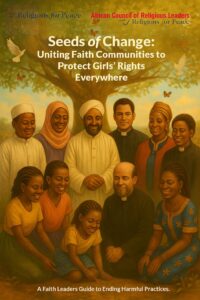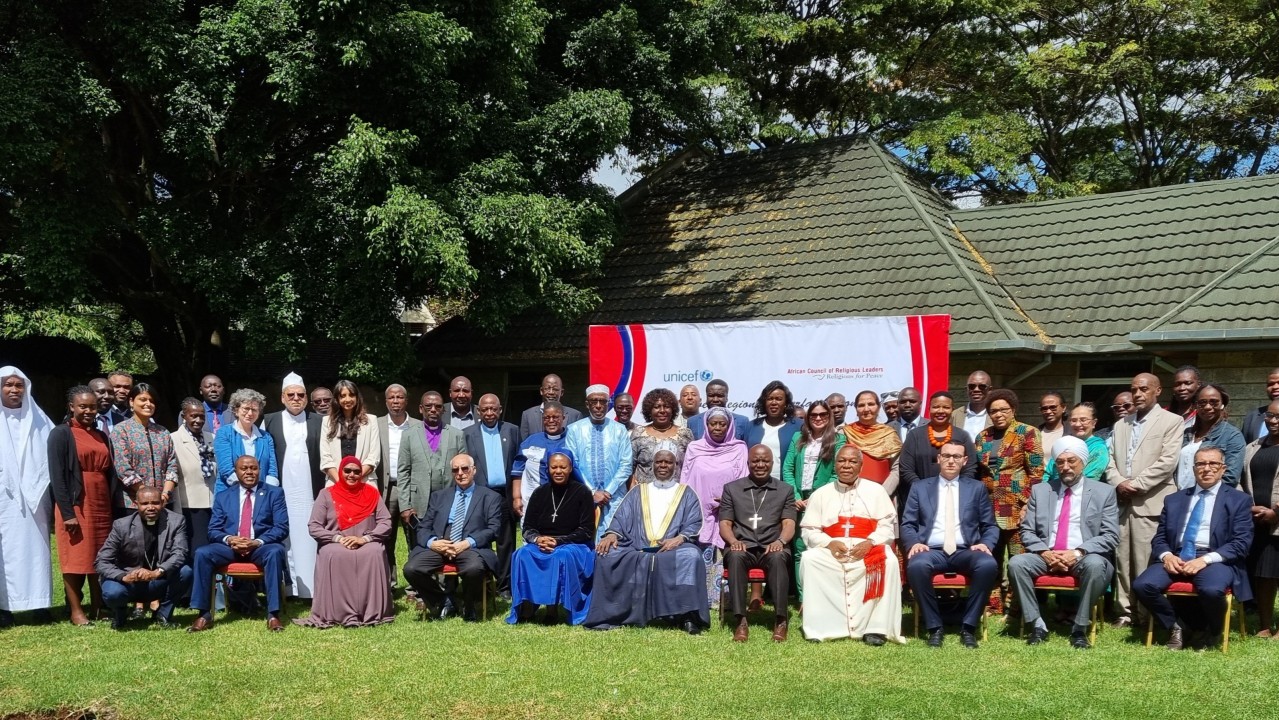By Paschal Norbert
NAIROBI, JUNE 24, 2025 (CISA)— Over 65 religious leaders, women of faith, and youth from across Eastern and Southern Africa gathered in Nairobi to reaffirm their collective commitment to end female genital mutilation (FGM), child marriage, and all harmful practices against girls. Convened by the African Council of Religious Leaders – Religions for Peace (ACRL-RfP) in partnership with UNICEF Eastern and Southern Africa, the two-day Regional Interfaith Conference concluded with a unified pledge: “Our girls are complete and whole.”
Held under the theme “Uniting Voices to End Harmful Practices and Promote Children’s Rights Everywhere”, from June 11 to 12, the conference brought together delegates from 16 countries, including Ethiopia, Kenya, Malawi, Sudan, Tanzania, Uganda, Zambia, and Zimbabwe. It underscored the pivotal role of faith leaders in reshaping harmful cultural norms that threaten the safety, dignity, and future of girls and women across the continent.
In his keynote address, His Eminence Sheikh Shaban Mubaje, Grand Mufti of Uganda and Co-Chair of ACRL-RfP, firmly rejected the use of religion to justify FGM and child marriage.
“Neither the Holy Qur’an nor the Holy Bible supports cutting girls or marrying off children,” he said, stressing “These are harmful traditions, not divine mandates. It is time to reclaim faith as a source of healing and dignity.”
With more than 42 million girls subjected to FGM, nearly 99 percent of women and girls in Somalia alone, and 60 million child brides across the region, the urgency of coordinated action was palpable. The growing medicalization of FGM in countries like Kenya and Ethiopia, and the increasing normalization of child rights violations, further fueled the call to faith-based action.
The African Council of Religious Leaders – Religions for Peace (ACRL-RfP), a pan-African interfaith body, works to promote peace, human dignity, and social justice by uniting diverse faith communities. Their mission is grounded in the belief that faith can bridge divides, uphold human rights, and drive transformative change.
The Nairobi conference marked the official launch of the Seeds of Change Toolkit, a faith-based resource designed to help leaders challenge harmful practices using theological guidance, scriptural references, and survivor-centered strategies. The toolkit walks religious communities through a four-stage journey: awareness, reflection, action, and institutional change. Developed through extensive consultation with faith leaders, scholars, and community actors, the toolkit offers practical, scripturally grounded ways to counter harmful norms and provide positive, faith-affirming alternatives. 
“We commit to amplify the voices of survivors, nurture safe spaces for girls and families, and denounce all forms of gender-based violence,” read a statement in the final declaration, co-signed by Co-Chairs The Most Rev. Albert Chama and Sheikh Mubaje, and UNICEF ESARO’s Deputy Regional Director, Allison Parker.
In addition to the toolkit, the delegates endorsed a Regional Strategy for 2025–2029 to guide faith-based, national, and grassroots action to eliminate FGM and child marriage. The strategy promotes public theological declarations, stronger legal frameworks, interfaith cooperation, and survivor support systems. It emphasizes the importance of engaging men and boys as allies in ending these practices, addressing patriarchal norms, and ensuring universal access to education for girls, especially those returning from early marriage and childbirth.
The conference also called on all African governments to urgently ratify and domesticate the AU Convention on Ending Violence Against Women and Girls (CEVAWG), stressing the need for coordinated regional and national frameworks. It urged media houses and influencers to collaborate with faith leaders in spreading positive narratives and called on faith leaders to engage traditional leaders in transforming harmful social norms. Delegates also encouraged investment in faith-based and community solutions with flexible funding, recognizing that lasting change must come from the grassroots.
The joint declaration firmly stated that there is neither religious nor cultural justification for harming a child. Communities were called upon to break the silence, reject harmful traditions, and protect every child’s right to safety, education, and dignity. With legislation alone proving insufficient and institutions often struggling to reach deeply rooted cultural structures, the declaration affirmed that faith can lead the way, opening hearts, reshaping norms, and restoring the promise of a future where every child is safe, empowered, and free.
As the conference concluded, participants reflected on both progress made and the persistent challenges ahead. They acknowledged successful alternatives such as positive rites of passage, media campaigns, and public theological declarations. Yet they also called for stronger partnerships, deeper community engagement, and sustained funding to ensure that change is not only possible, but permanent.
